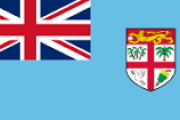The United Nations General Assembly in 2016 Declared the 2nd of May as the World Tuna Day. The World Tuna Day draws attention of consumers, governments, industry and civil society to the pressures this vital source of food and livelihoods now faces’ and for the need for collective global action.
A statement released by the Permanent Representative of Fiji on behalf of Pacific Island Developing States (PSIDS) at the UN stated that “tuna is a significant source of food and an economic driver for Pacific Island States; with approximately 7 million tonnes of tuna landed yearly. The PSIDS region alone provide just less than 40 percent of the Global tuna catch”. The Pacific states are reminding the world that “it is in the interests of both the small states of the Pacific and of the world that this resource be managed sustainably”.
Marking the World Tuna Day, the PSIDS together with the UN’s Group of Friends of the Oceans (a group of countries committed to supporting and accelerating the full implementation of SDG14 – life below water) hosted a special virtual event to commemorate the World Tuna Day 2020.
Dr Transform Aqorau, the Designate Permanent Representative of Solomon Islands to the UN and the Pacific’s leading tuna expert addressed the UN special event from Honiara, Solomon Islands.
Dr Transform Aqorau told the global audience that the “Pacific Island states needed to think hard about the sustainability of the tuna industry. Unsustainable levels of harvesting of the tuna resource was a challenge faced by many tuna producing nations across the world”.
In his address, Dr Aqorau said that “COVID19 was presenting both challenges and opportunities to rethink the tuna industry in the Pacific. He said that the tuna industry will suffer as quarantine requirements; suspension of air flights; and disruptions to the supply chain will affect the supply of tuna to regional and global markets. This will have adverse impact on jobs in the Pacific and on foreign exchange earnings from the industry”.
Dr Aqorau also said that the Pacific, should “use the opportunity to rebuild a more equitable Pacific tuna industry”. Pacific Government’s “should explore incentive structures that encourage increased processing within the region”. Pacific Governments he said, should “ invest in expanding equity in tuna processing enterprises that rely on Pacific’s tuna but which are based outside the Pacific region”.
Dr Aqorau said that climate change and illegal and underreporting of tuna catches were a growing concern that Pacific Government’s need to be fighting for in the international arena.
A statement issued by the Western and Central Pacific Fisheries Commission to commemorate the Day stated that “from a conservation lens; it is gratifying for the WCPFC to celebrate the World Tuna Day in 2020 in the comfort and knowledge that the four key commercial tuna stocks; bigeye, yellowfin, skipjack and the South Pacific albacore tuna stocks are all assessed to be managed and maintained above the agreed sustainable levels”.
Dr Satyendra Prasad, Fiji’s Permanent Representative to the UN, reminded the UN audience that the “World Tuna Day 2020 focusses global attention to the considerable pressures that global tuna stocks face from illegal and over fishing; from harmful subsidies to fishing companies by many Governments; from the impacts of climate change – especially warming seas and acidification”.
Ambassador Prasad said that “ accelerating international action in achieving the SDG 14 – Life Below Water should be part of the Global response. This should also become a core part of the COVID19 recovery efforts by Governments. The COVID19 recovery must be a sustainable blue recovery. The Pacific region would do well to lead the world yet again in this approach to COVID19 recovery”.


